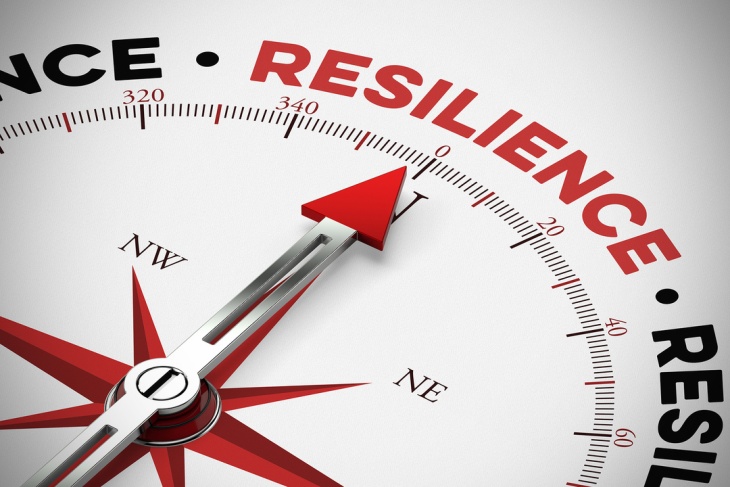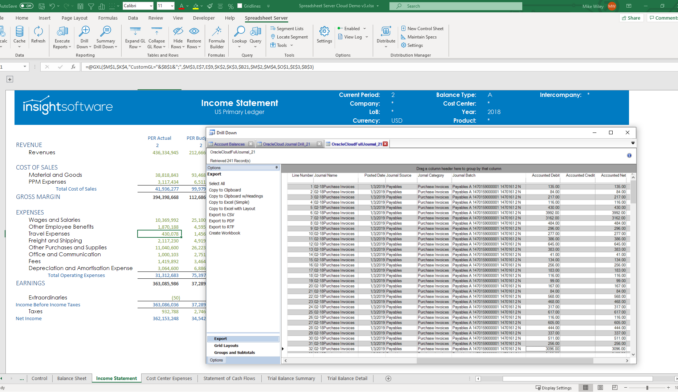5 CFO Strategies to Build Business Resilience

For most business leaders, the current crisis has been a wake-up call. Unexpected events have brought about enormous changes in customer demand, the supply chain, and the availability of the workforce. Throughout all of this, “resiliency” has emerged as a major theme.
Although not all industries have been equally affected by the crisis, there are a number of common themes, and the overall lesson is clear: Agility, adaptability, and resiliency can make the difference in the survival of your business.
Here are five strategies to consider as you look to the future.
1. Expect the Unexpected
Resilient organizations are adept at scanning the environment, seeing what may be on the horizon, and understanding the implications earlier than their counterparts. Deloitte calls this “anticipation capabilities and collateral pathways.” This kind of foresight arises from having both a macro and micro understanding of the world. It requires the ability to see the big picture, such as global economic trends, as well as a lower level picture of the company, the industry in which it operates, and its immediate environment.
For years, large enterprises have used scenario planning to anticipate circumstances that might not previously have been imagined or discussed in much detail. The practice has its origins in the US military, but began to be more widely adopted among large businesses in the 1960s and 70s. Today, it is a well-established practice that can benefit organizations of almost any size.
At its heart, scenario planning challenges participants to imagine possibilities that fall outside of their normal day-to-day experience. It helps managers to overcome normalcy bias and quickly establish whether things are, in fact, different now.
CFOs should develop their organization’s forecasting and analysis capabilities to support this practice, whether it takes place as a formal exercise at an annual offsite or informally at strategic reviews. By combining scenario planning practices with strong reporting and analysis capabilities, organizations can increase their ability to anticipate disruptive events and develop detailed plans to deal with them.

2. Move Quickly
McKinsey & Company has found that resilient companies tend to respond quickly in a crisis by trimming the balance sheet and cutting expenses faster than other businesses. Companies that have mastered strategy #1 above are more likely to be positioned for rapid response.
Resilient companies do not just react quickly ahead of a crisis, however. According to McKinsey’s Cindy Levy, they are also ahead of the curve when it comes to recovery. Top performers tend to focus on opportunity and growth coming out of a crisis. Companies that move quickly to trim back their operations going into a crisis are better positioned to take advantage of opportunities on the rebound.
3. Invest in Future-Proofing
Companies that have a strong technology foundation also tend to weather crises better than their peers. Technology enables resiliency in multiple ways. Cloud computing platforms, for example, typically provide automated backup and failover capabilities that previously might have been managed in-house, at a substantially higher cost. As employees have shifted to remote work, collaboration tools have made it possible to continue getting the important things done, despite significant barriers. Organizations that have such tools in place before a crisis have a significant advantage.
There is a larger implication, however, to the observation that tech-friendly companies fare better during a crisis. A recent study by the Centre for European Economic Research (ZEW) indicates a strong correlation between innovation and resiliency. Organizations that view technology as a competitive advantage, an enabler of innovation, are not only more adaptable, but they are also more likely to think creatively and come up with solutions to get them through the crisis.
Strategic investment in technology today will yield results regardless of what is going on in the outside world, but when disruption occurs, it plays a more important role than ever.
4. Build Failover Capability
There is an old saying in the military: “Two is one, and one is none.” When the stakes are high, it is important to have a backup plan. Failover systems need not be costly, however. It can be as simple as cross-training staff to mitigate unexpected emergency absences. As many businesses have discovered recently, though, it is useful to have fallback systems already in place when a crisis hits.
A related strategy is to push capabilities downstream as far as possible; in other words, to empower front-line workers with the tools to get the job done without outside help. Finance and accounting professionals, for example, should be capable of building reports or modifying existing reports without outside help from IT experts.
5. Nurture Relationships
Every business is a people business. According to Dr. Michela Coppola, businesses that have built strong relationships tend to be at an advantage in times of crisis. Collaboration supports innovation and exposes your organization to resources that might not otherwise be available.
For the CFO, it is more important than ever to have strong relationships with lenders and investors. As many businesses discovered recently, a healthy relationship with your primary lender can be a deciding factor in getting a much-needed cash infusion, even when that funding is coming from a government source.
Strong relationships with vendors and customers are likewise critical. At a time when cash is tight for most businesses, your ability to leverage good relationships may enable you to extend payment terms with your vendors or, if necessary, to retain your most valued customers by extending more generous terms.
Ultimately, resiliency is a discipline that must be practiced on an ongoing basis. It starts with a habit of scanning the environment and asking “What if…?” It requires a capacity to think differently when everyone else may be subject to normalcy bias.
Finally, it calls for the foresight to make strategic investments in technology that afford the organization greater flexibility in good times or bad. CFOs play a critical role in driving these practices that support and enable long-term resiliency.








